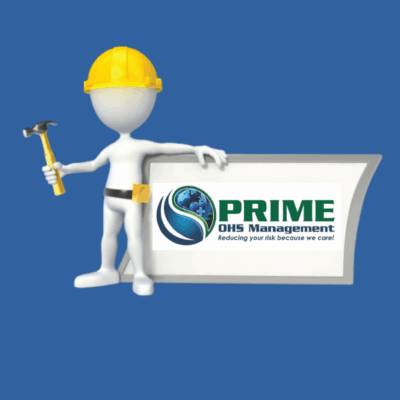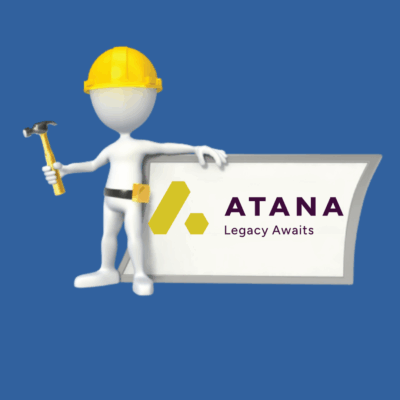The construction industry in South Africa is competitive and dynamic, requiring firms to adopt effective bidding strategies to secure projects. Bidding on construction projects is a complex process that involves understanding client needs, accurate cost estimation, and demonstrating the capability to deliver high-quality work on time. This blog explores the importance of effective bidding, key strategies to enhance the bidding process, and best practices tailored to the South African market.
The Importance of Effective Construction Project Bidding
- Winning Contracts Successful bidding is crucial for winning contracts and ensuring a steady flow of projects. Without effective bidding strategies, construction firms may struggle to secure enough work to sustain their operations.
- Profitability Effective bidding ensures that projects are not only won but also profitable. Accurate cost estimation and strategic pricing are essential to cover expenses and generate profit.
- Market Positioning A strong track record of winning bids enhances a company’s reputation and market positioning. It signals to potential clients and partners that the firm is capable, reliable, and competitive.
- Resource Utilization Winning bids allow construction firms to utilize their resources efficiently. Properly planned projects keep equipment, labor, and materials in use, maximizing productivity and minimizing downtime.
Key Strategies for Effective Construction Project Bidding
- Thorough Understanding of the Project Scope Before preparing a bid, it is essential to thoroughly understand the project scope. This includes reviewing all project documents, visiting the site, and clarifying any ambiguities with the client.
Steps to Understand Project Scope:
- Review Documentation: Study all plans, specifications, and tender documents provided by the client.
- Site Visit: Conduct a site visit to assess conditions and identify potential challenges.
- Client Communication: Engage with the client to clarify any uncertainties and gain a deeper understanding of their expectations.
- Accurate Cost Estimation Accurate cost estimation is the foundation of a competitive bid. This involves calculating all direct and indirect costs associated with the project.
Cost Estimation Tips:
- Material Costs: Obtain quotes from suppliers for all required materials.
- Labor Costs: Estimate labor costs based on the project’s complexity and duration.
- Equipment Costs: Include the cost of renting or purchasing equipment.
- Overhead Costs: Factor in overhead costs such as administration, insurance, and permits.
- Contingency Fund: Set aside a contingency fund for unexpected expenses.
- Competitive Pricing Setting a competitive price is crucial for winning bids. The price should be attractive to the client while ensuring profitability for the contractor.
Pricing Strategies:
- Market Research: Conduct market research to understand the pricing strategies of competitors.
- Value Engineering: Identify cost-saving measures without compromising on quality.
- Profit Margin: Determine a reasonable profit margin that balances competitiveness and profitability.
- Demonstrating Capability and Experience Clients look for contractors with proven experience and the capability to deliver high-quality work. Highlighting past projects and demonstrating relevant expertise can strengthen a bid.
Showcasing Capability:
- Portfolio: Include a portfolio of similar projects completed successfully.
- References: Provide references from previous clients who can vouch for your work.
- Certifications: Highlight any industry certifications or awards that demonstrate your competency.
- Strong Proposal Presentation A well-presented proposal can make a significant impact on the client. It should be clear, professional, and tailored to the client’s specific needs.
Proposal Presentation Tips:
- Executive Summary: Provide a concise overview of your bid, highlighting key points.
- Detailed Breakdown: Include a detailed breakdown of costs, timelines, and methodologies.
- Visual Aids: Use visuals such as charts, graphs, and images to enhance the proposal.
- Customization: Tailor the proposal to address the client’s specific requirements and preferences.
- Compliance with Regulatory Requirements Ensuring compliance with all relevant regulatory requirements is essential. This includes obtaining necessary permits and adhering to local building codes and safety standards.
Regulatory Compliance Tips:
- Research Regulations: Stay informed about local building codes and regulations.
- Permits and Approvals: Ensure all required permits and approvals are in place before bidding.
- Safety Standards: Adhere to industry safety standards and include safety plans in your proposal.
- Risk Management Identifying and managing risks is crucial for a successful bid. This involves anticipating potential challenges and outlining strategies to mitigate them.
Risk Management Tips:
- Risk Assessment: Conduct a thorough risk assessment to identify potential challenges.
- Mitigation Strategies: Develop strategies to mitigate identified risks, such as contingency plans and insurance coverage.
- Client Assurance: Provide assurances to the client that risks will be managed effectively.
Best Practices for Construction Project Bidding
- Build Strong Client Relationships Establishing and maintaining strong relationships with clients can enhance your chances of winning bids. Positive relationships can lead to repeat business and referrals.
Relationship Building Tips:
- Regular Communication: Keep in touch with clients through regular updates and meetings.
- Professionalism: Maintain a high level of professionalism in all interactions.
- Client Feedback: Seek feedback from clients and use it to improve your services.
- Leverage Technology Utilizing technology can streamline the bidding process and improve accuracy. Tools such as project management software, cost estimation tools, and CRM systems can be valuable assets.
Technology Tips:
- Project Management Software: Use software to manage project timelines, resources, and costs.
- Cost Estimation Tools: Employ cost estimation tools to ensure accurate and detailed estimates.
- CRM Systems: Utilize CRM systems to manage client relationships and track interactions.
- Continuous Improvement Continuously improving your bidding process can enhance your competitiveness. This involves learning from past bids and staying updated with industry trends.
Improvement Strategies:
- Post-Bid Reviews: Conduct post-bid reviews to identify strengths and areas for improvement.
- Training and Development: Invest in training and development for your team to enhance their skills.
- Industry Trends: Stay informed about industry trends and adjust your strategies accordingly.
- Collaborate with Subcontractors and Suppliers Building strong relationships with reliable subcontractors and suppliers can improve your bid’s competitiveness and ensure project success.
Collaboration Tips:
- Reliable Partners: Choose subcontractors and suppliers with a proven track record of reliability and quality.
- Clear Agreements: Establish clear agreements outlining the scope of work, timelines, and costs.
- Regular Communication: Maintain regular communication to ensure alignment and address any issues promptly.
- Effective Marketing and Branding A strong brand and effective marketing can enhance your reputation and attract more opportunities. Highlighting your strengths and differentiators can set you apart from competitors.
Marketing Tips:
- Online Presence: Maintain a professional website and active social media profiles.
- Content Marketing: Use content marketing to showcase your expertise and thought leadership.
- Client Testimonials: Feature client testimonials and case studies to build credibility.
Case Studies of Successful Bidding Strategies
1. WBHO Construction
Overview: WBHO Construction is one of South Africa’s leading construction companies, known for its effective bidding strategies and successful project delivery.
Bidding Strategies:
- Detailed Proposals: WBHO provides detailed and well-structured proposals, addressing all client requirements.
- Competitive Pricing: The company conducts thorough market research to set competitive yet profitable prices.
- Strong Client Relationships: WBHO maintains strong relationships with clients, leading to repeat business and referrals.
2. Stefanutti Stocks
Overview: Stefanutti Stocks is a renowned construction company in South Africa, recognized for its strategic approach to bidding.
Bidding Strategies:
- Accurate Cost Estimation: The company uses advanced cost estimation tools to ensure accuracy.
- Portfolio and References: Stefanutti Stocks highlights its extensive portfolio and positive client references in bids.
- Regulatory Compliance: The company ensures full compliance with all regulatory requirements, providing confidence to clients.
3. Murray & Roberts
Overview: Murray & Roberts is a leading engineering and construction services company in South Africa, known for its successful bidding strategies.
Bidding Strategies:
- Thorough Understanding: The company conducts thorough research to understand project scopes and client needs.
- Risk Management: Murray & Roberts includes comprehensive risk management plans in its bids.
- Technology Integration: The company leverages technology to streamline the bidding process and improve accuracy.
Future Trends in Construction Project Bidding
- Digital Transformation The construction industry is undergoing a digital transformation, with technologies such as BIM, AI, and blockchain improving the bidding process. These technologies enhance accuracy, transparency, and efficiency.
- Sustainability Focus Clients are increasingly prioritizing sustainability in construction projects. Bids that highlight sustainable practices and eco-friendly materials are more likely to succeed.
- Collaborative Bidding Collaborative bidding, where multiple companies partner to bid on large projects, is becoming more common. This approach leverages the strengths of each partner to enhance the bid’s competitiveness.
- Data-Driven Decisions The use of data analytics to inform bidding decisions is on the rise. Analyzing past bids, market trends, and project outcomes can provide valuable insights for future bids.
- Client-Centric Bidding A client-centric approach to bidding, where bids are tailored to meet the specific needs and preferences of clients, is gaining importance. This involves personalized proposals and a deep understanding of client goals.
Conclusion
Effective construction project bidding is crucial for securing contracts, ensuring profitability, and maintaining a competitive edge in the South African market. By adopting strategies such as thorough understanding of project scope, accurate cost estimation, competitive pricing, demonstrating capability, and strong proposal presentation, construction firms can enhance their bidding process. Best practices such as building strong client relationships, leveraging technology, continuous improvement, collaborating with subcontractors and suppliers, and effective marketing can further strengthen bids. As the industry evolves, staying ahead of trends such as digital transformation, sustainability focus, collaborative bidding, data-driven decisions, and client-centric approaches will be key to success. By implementing these strategies and best practices, construction professionals can secure more projects and achieve long-term growth in the South African market.
About Victor Terblanche
- Web |
- More Posts(28)









Leave a Reply